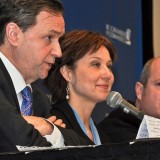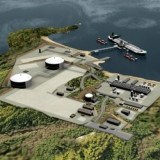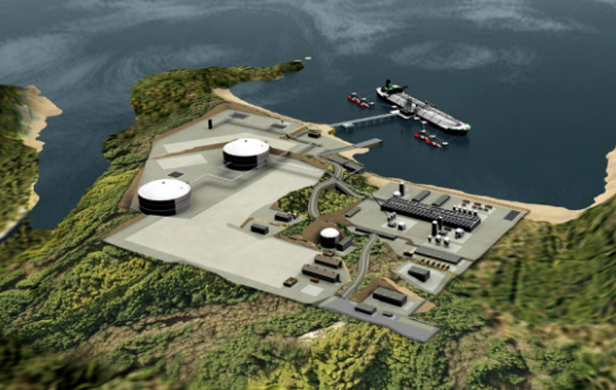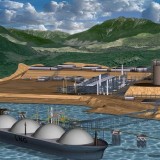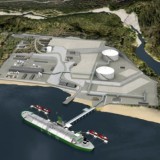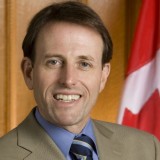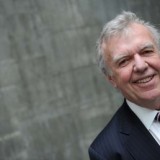Today, a twofer.
First, I feel sorry for Christy Clark. She is, no doubt, a very decent person and mother.
Her mistake was assuming that she had the ability to govern. She’s scarcely the first person to make that mistake, nor will she be the last.
I know “I told you sos” are not popular but I have to say it: I told you so. Clark had been a mediocre cabinet minister at best. She chose to sit out the rotting Campbell years and had no noticeable power base.
To make things worse, she won with but one member of caucus supporting her and when she awarded him a cabinet seat this was resented by more obviously qualified backbenchers. In short, damned near her entire caucus has, if not a death wish for her, at most taken a luke warm “let’s wait and see” approach.
Her two years in office have been a nightmare for her, especially since BC Rail and the HST were legacies from the Campbell dictatorship.
Unless the Liberals want a wipeout, like they administered to the NDP in 2001, they must quickly change leaders and my observation tells me that George Abbott is their best hope.
The best examples of this situation in modern times go back to 1989 with the Socreds and 2001 with the NDP and Ujjal Dosanjh.
There are differences. Vander Zalm did win the 1986 election and his resignation was so long postponed that his successor Rita Johnston had no chance. Moreover, there were no stars waiting in the wings. Even with all that, Rita Johnston avoided a wipe-out and had the party put Grace McCarthy in the leader’s chair, the Socreds would certainly have been competitive in the 1991 election – and even of she had lost, the Socred opposition would have been able to refresh the party.
In 2001, the NDP were split by the truckloads of new members brought in to support Dosanjh and he should have done what so many advised him to do – come out of the leadership convention and call an election. Instead, his dithering would bring about the party’s downfall months later.
The chance of a Liberal win in 2013 rates up there with the miracle of the fishes and the loaves – and even with a new leader the best they can hope for is having a decent opposition.
After the 2001 election, former Premier Bill Bennett told the Socreds to keep the party legally alive because who knows?
Who knows indeed?
Canada rarely rates a mention in overseas newspapers, yet in last week’s Guardian Weekly is a story about BC! And it’s right there on page 5, under the headline “Canada’s Spy Chiefs Targets Anti-Frackers”.
“Security and police agencies have been increasingly conflating terrorism and extremism with peaceful citizens exercising their democratic rights to organize petitions, protest and question government policies…” goes the story.
Watch out, you long-haired, bearded dissidents! (alas I fit that description!) Big Brother is watching you!
Actually, I have some experience in this field. In the 1992 Constitutional referendum campaign, John Crosby called me “Canada’s most dangerous man”. Prime Minister Mulroney called me a “traitor” and, according to my “spy” in the Conservative caucus, Mulroney was considering ordering an income tax audit on me.
Fracking is indeed cause for concern. The use of this controversial technique for extracting natural gas is new and worldwide.
The process involves drilling vertically into shale rock for a mile or more then drilling horizontally and pumping in chemically laced water, cracking the shale and forcing the natural gas to the surface. The activity is catching on so quickly that a few weeks ago the story was that China was spending billions on exploration for shale gas, followed a few days later by another story that China has 300 years’ supply. Russia, the world’s largest conventional gas player, is also preparing to join the fracking boom.
With all this, there has been precious little in the way of environmental study done – and that which has is raising all manner of concerns. Where does the water come from? At the end of the process, where does the badly polluted water go? What about the instability of the area after the gas is extracted?
What about economic concerns? Huge promises are being made by our premier about building an industry to supply new Asian customers with Liquefied Natural Gas (LNG) from BC. If China has a 300 year supply, why would they want to import LNG? What impact will this have on the Tar Sands and the pipelines to the BC coast?
By and large, the only economic studies have been done by the companies, hand in hand with compliant governments.
However, I’ve gone too far. You’re best to destroy this blog, lest, studying these points brings an early morning visit from CSIS, as they brave all slings and arrows of criticism.
Evidently, dissenters, under the cover of democratic principles, promote mistrust of and disobedience of our farsighted governments and huge international companies who only want what’s good for us. I mean, how can anyone question the orders of the Harper and Clark governments with their impeccable record on environment and public safety concerns?
Shame on us!
